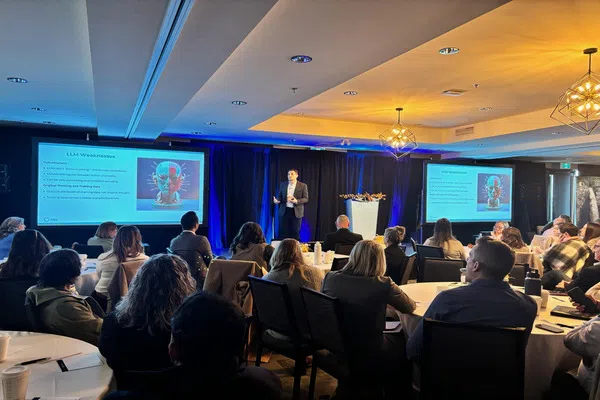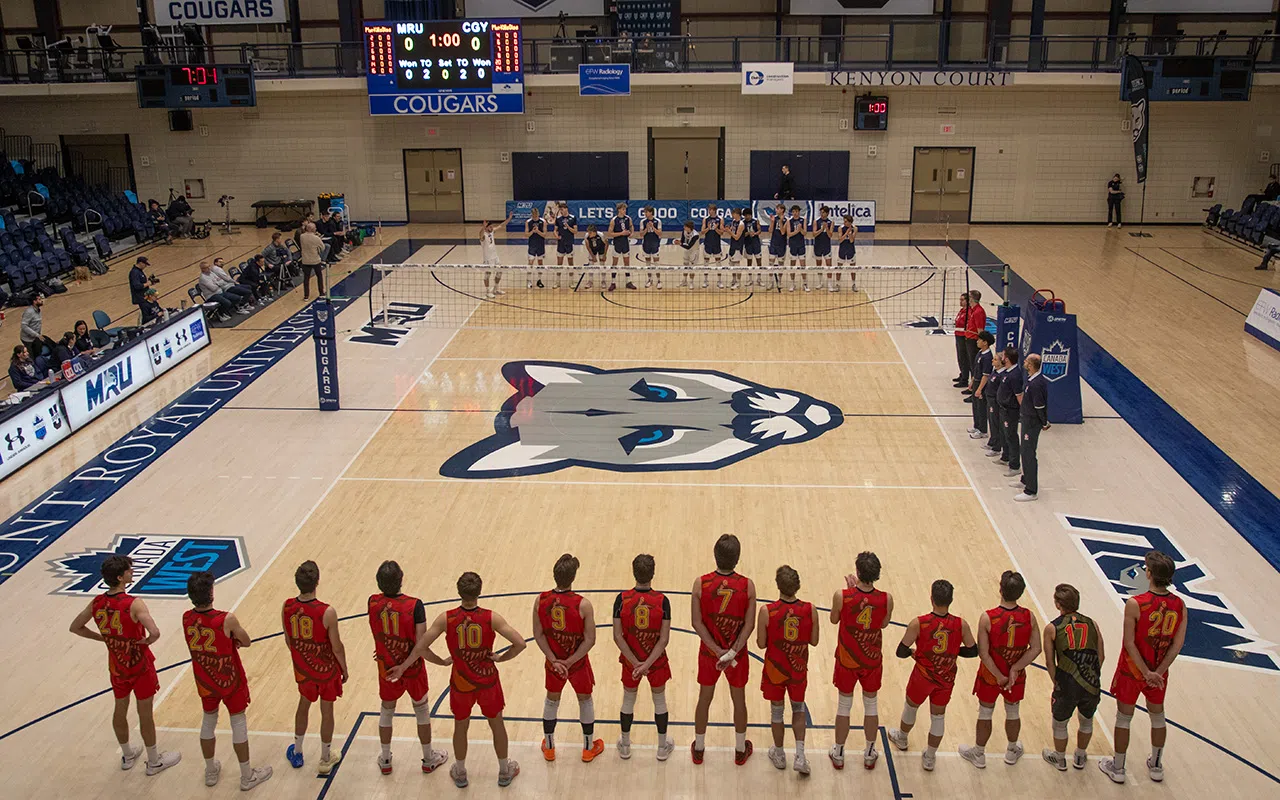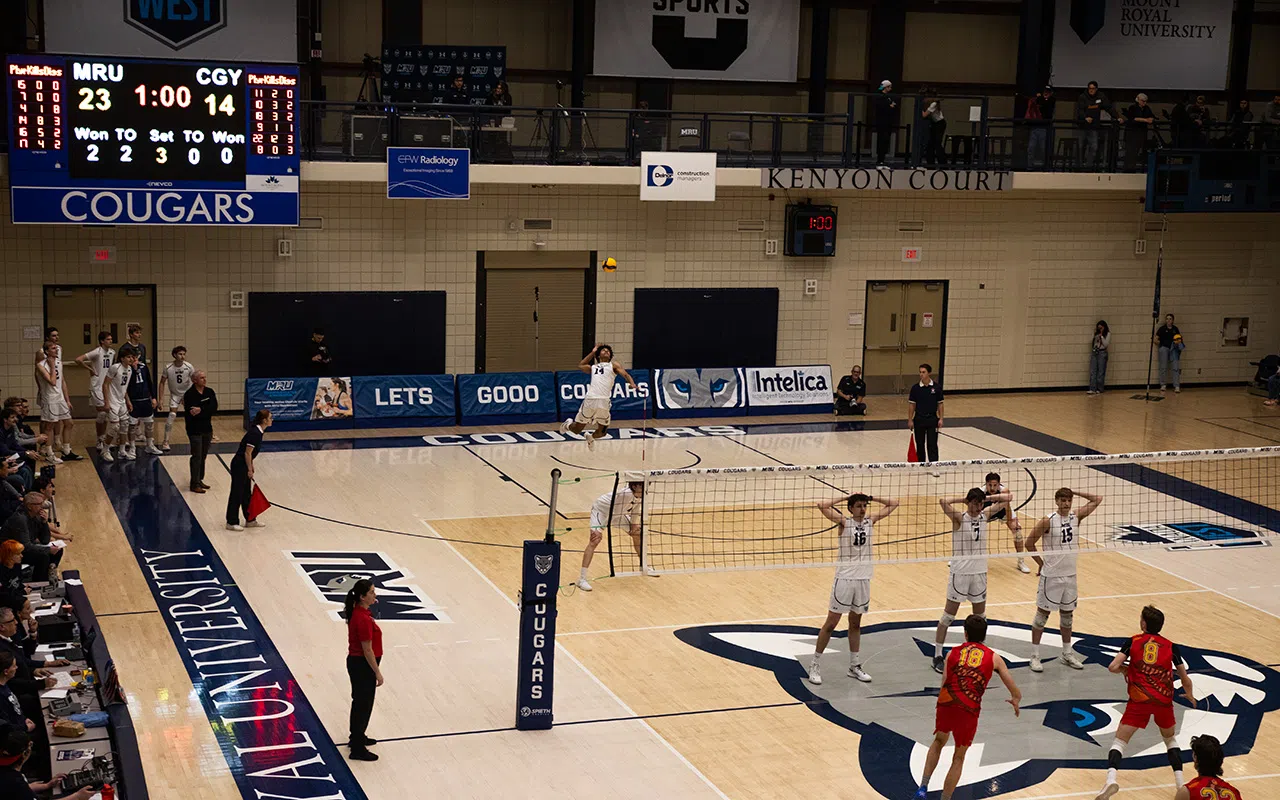
Peter Pilarski presents the transformative potential of AI in the tourism industry at the Thompson Okanagan Tourism Association Summit, enabling non-profits to leverage innovative AI solutions for growth and sustainability. (Nish Banerjee, CMRU.ca).
Peter Pilarski founded the Tourism AI Network, focusing primarily on the tourism industry. He partners today with some of the leading tourism non-profit organizations across North America and rolls out AI-driven services and solutions to integrate artificial intelligence into the systems and processes of these organizations.
He assists tourism non-profits in boosting their local tourism by enhancing visitor experience, increasing the efficiency of operations, giving ongoing support and advice on AI tools, and automating repetitive jobs so organizations can focus on customer-centric strategies to achieve sustainable growth.
As a business and community partner, Pilarski aims to build a community of next-generation AI professionals by educating them on the benefits of AI. “Tourism is just a starting point. It’s not the ending point,” Pilarski explains. His mission and vision are to cultivate AI literacy in tourism professionals, empowering them to utilize AI tools to improve their productivity and creativity.
The AI adoption framework
Pilarski has developed the concept of the AI Adoption Framework, a three-step process aiming at helping tourism non-profits and their professionals integrate AI through AI Literacy, modifying current process models to embrace AI, and lastly, effective AI enablement, thus enhancing overall efficiency.
He is also helping the community through “tool-agnostic,” a method that assists in prioritizing processes over specific technologies and acknowledges the importance of using basic AI tools like ChatGPT solely for training purposes.
Partnership with Tourism Chilliwack
Pilarski’s partnership initiatives with numerous non-profit tourism associations, such as the Tourism Association of British Columbia, Tourism Kamloops, the Northwest Territories Tourism Association, and the Yukon Tourism Industry Association, are extensive. Tourism Chilliwack, being their pilot project partner, benefits from the partnership program with Pilarski and the Tourism AI Network in the following areas.
- Custom GPT Development:
- He educates professionals of Tourism Chilliwack on the use of custom-made GPTs (Generative Pre-Trained Transformer) for faster email responses, thus streamlining communication with the community.
- AI Chatbot Implementation:
- Pilarski educates professionals on how to use AI chatbots on their websites to assist with tourism/visitor inquiries.
- He assists in enhancing visitor engagement and providing instant support.
- Conference Meetings and Education:
- Pilarski provides workshops and conferences to help the organization understand and utilize AI technologies to improve its systems and processes.
- He ensures that the team feels confident in using new AI tools to develop strategies to connect effectively with local visitors and tourists.
- Ongoing Support:
- Pilarski gives continuous support and guidance to Tourism Chilliwack as it identifies and implements new AI strategies.
- By conducting regular check-ins and refining strategies based on feedback, Pilarski ensures that the Tourism AI Network’s initiatives are effectively addressing the evolving needs of the community. This continuous assessment allows for the identification of challenges, the optimization of AI solutions, and the enhancement of collaboration between organizations. As a result, the community benefits from more efficient operations, improved services, and greater opportunities for growth and innovation, ultimately fostering a dynamic tourism sector.
“The partnership with the Tourism AI Network marks a significant step towards integrating AI into community tourism strategies,” says Carly Brkich, Destination Marketing Manager of Tourism Chilliwack and provides valuable resources and services, thus empowering their team to leverage technology for improved community engagement.
Embracing change in the AI world
In the video below, Pilarski talks about the role of the Tourism AI Network and the impact it has on the community through its collaborative initiatives and partnership programs with various non-profits, including Tourism Chilliwack. He emphasizes the importance of understanding AI through a systematic strategy for its adoption and explains the ways in which organizations need to work significantly toward transforming the world of tourism in the near future.
Pilarski’s impact on the community
Through his visionary initiatives and commitment to partnership, Pilarski is making substantial strides in integrating AI into the tourism sector. His work has not only enhanced operational efficiencies for organizations like Tourism Chilliwack but also fostered a more sustainable and responsible tourism environment that benefits the community. His efforts reflect a broader movement towards embracing AI as a tool for positive change within the community.
Personal reflection
This project gave me the valuable opportunity to collaborate with Peter Pilarski, the founder of the Tourism AI Network, and Carly Brkich, the Destination Marketing Manager of Tourism Chilliwack, a non-profit organization which is focused on community development in partnership with Peter Pilarski. This experience has significantly impacted me both personally and professionally.
One of the key lessons I have learned is the importance of adaptability in a world where technology is evolving at breakneck speed. Working alongside Peter Pilarski and Carly Brkich has opened my eyes to the unique challenges they face in integrating AI into their respective fields. Their insights have highlighted not only the technical hurdles but also the human aspects of such integration—how technology can sometimes create barriers rather than solutions if not handled carefully.
Moreover, I believe the media content we have developed throughout this project can serve as a robust resource for our community partner. By showcasing their successes, innovative strategies, and lessons learned, we aim to create a ripple effect that encourages other organizations to embrace AI and find their own unique paths to innovation. This content is not just informative and educative; it is a source of inspiration meant to empower others to explore the potential of AI in their endeavours.
Overall, this experience has deepened my commitment to helping communities navigate the complexities of technology. It has reinforced my belief that when we work together to harness the transformative power of AI, we can create meaningful change.




Comments